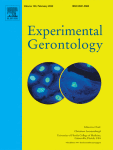Protein Comparative Chart
From the time that the first physique enthusiasts & bodybuilders ever started choking down extra chicken breasts, steaks, and vile concoctions to increase their protein intake for the purposes of gaining muscle; the question of just how much protein is optimal has been debated. Fast forward more...
simplyshredded.com
This chart provides comparative information on the various proteins; the amount needed to obtain the right Leucine dosage.
View attachment 14135
Vegan Proteins
Vegan Foods are low in Protein and Leucine.
Beans and Rice
I once calculate the amount of Beans and Rice necessary to obtain enough Protein, which means to obtain enought Leucine in a meal.
An individual would need to need to consume approximately three (3) cups of Beans and Rice; which is nuts.


